After receiving an adult ADHD diagnosis a few things clicked into place. Now there was a neurological reason for the creative chaos that my novel writing threw up, a messiness that part of my personality could not fully embrace. The idea of drafting and redrafting would often scare me and then bore me stiff.
My ADHD brain rules, ok?
When I first started writing I was commissioned by Esquire magazine to turn out comic features where I could riff on surreal insights in one sustained burst. This timeframe suited my dopamine hungry receptors. They could be co-opted into concentration by the prospect of an approaching deadline and a large cheque that would pay the rent. The first rule of the ADHD brain is working to a deadline. Soon I was turning out short stories during nights of insomnia (another side-effect of ADHD). I enjoyed writing in the silence, listening to the occasional police siren, wondering if they were coming for me. The spookiness (seeing my pale bestubbled face hovering outside the window over the lawn) meant my fiction gravitated towards horror and the uncanny. Nighttime is when the old stories were told or enacted around neanderthal fires, where the bricks of reason loosen and give way. Through the night I felt connected to these old scaremongering storytellers. My concentration needed boosting. There is something about the physiological buzz of a tale of terror that prolongs the creative wordcount, keeps you chained to your desk in the primeval silence. The second rule of the ADHD brain is that it needs the unruliness to be contained. This is where the constraints of genre can be energizing. What I was responding to in horror or the ghost story, aside from the delicious tingle of horripilation, were the inflexible rules surrounding the revenant. The creative chaos could be poured in its molten fury into a series of moulds.
The ADHD insight could flash into awareness, imagining cold callers who are cold for all the wrong reasons, turning up on doorsteps and sucking away at the living. The sensory confusion could be regulated and allied to plot in steady, storytelling steps. Imagine ADHD as a wriggling child, squirming at overhead lighting, physically compelled to dance to the hum of fridge freezers in supermarkets whereas genre is the firm parent telling this child to channel its sensory impressions into choosing three items for supper.
Advantages of ADHD for writers
Neurodivergent writers can utilize these sensory advantages. Normal fiction is predominantly visual and when it is good – cinematic. When I began to write, my characters were always experiencing texture and sound along with the visual. The third rule of neurodivergent writing is to capitalize on your different sensory powers. You can create fully realized three dimensional characters because, at first, unwittingly, and then by design, you will be engaging different senses in the reader.
I don’t want to sound unrelentingly upbeat about ADHD. The negative impact is well documented: the relationships and jobs that fall by the wayside, the emotional turmoil and dissatisfaction that increases in later life when you can no longer be looked on with envy as “a real live wire,” or someone who “never experiences a dull moment.” The prolonged intensity of impressions is dulling as well as the continual search for distraction. However, writers must work with what they have. The risk-taking behaviours that can be so dangerous in life can add edginess to your fiction. As a teenager I took delight in ricocheting off the conversational thrust and redirecting listeners to curious little backwaters, thinking I was spellbinding! Later, I saw myself as a bubbling backwater of irrelevant detail, keeping afloat was exhausting. Fellow swimmers were few and far between. Once I realised that my thought processes followed different rhythms to neurotypical people then I implemented my knowledge in spicing up my fiction, taking sentences and plots in unexpected directions. As long as I remembered to return to the story, to the parent calling across the playground that it’s time to go home.
What about writing novels when resilience is needed as well as long term executive function? Could the physiological thrill of genre extend into a longer project? It was clear that I loved reading doorstops: Trollope, Sensation fiction, Tolstoy. The hyperfocus was intense. I can still recall the texture of the toast crumbs in the bed I spent three months holed up in during a depressive bout reading The Anatomy of Melancholy. The hyperfocus did not seem to extend to writing. The rewards and dopamine were neurologically lacking for longer stints. Fiction remained my emotional ballast and now I understand why.
Delight in fragmentation
Novels provide a narrative arc to a life of episodic mayhem where the lack of structure is, frankly, embarrassing. Writing would always be a struggle because ADHD is violently anti-narrative. Being episodic and fragmentary, ADHD looks for the big reveal in miniscule detail but often gets embedded in the moment. We might call this ‘mindfulness’ but it is not of the calming variety. The ‘thickness’ that Henry James approved of in fiction becomes even stickier until you are so syrupy and encrusted in phenomena that you cannot move. The tendency is to polish each paragraph into a single facet until it is airtight, resulting in a lack of propulsion.
It might be that the fragmentation of ADHD is suited to Modernism; the world being blown to smithereens. If there were an ADHD school of writing it would be dedicated to polishing those smithereens into micro fiction. We don’t all want to write flash fiction. What is needed is an appreciation of the building blocks of fiction, each smithereen can become a scene. What was missing was an overview of the whole project and it was through medication I could hold all the disparate strands together. I stumbled on a fragmentary structure of four criss-crossing voices that could enable my brain rhythms to keep writing with the option of switching voice when the linearity became too constrictive.
I completed my PhD and novel in one last medicated spurt. Within three months I chalked up over 84,000 coherent words. True to form the deadline and meds kicked in. What I learnt was that some of my theoretical neurodivergent concerns could be embedded within the novel. Now unmedicated my body tells me to plunge into the North Sea in these last warm days of September, to cycle pell-mell down the gravel paths of the seawall with the big skies and clouds stacked above. Eventually I must get back to the novel’s guts, start tugging them into a tidier shape, ignore the internal magpie chatter that says we are all doomed! Even if we are doomed some activities can make us sleep better at night.
Daniel Jeffreys is an Editor and novelist who reads contemporary and comic fiction, Weird fiction, horror and short stories for TLC. Find out more about our editorial services here.


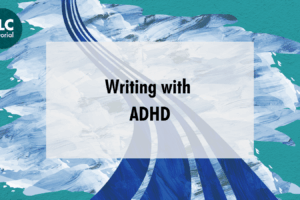
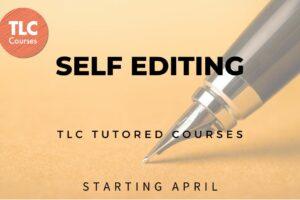
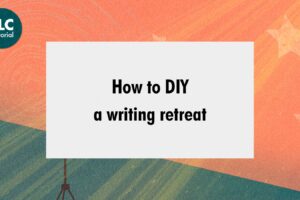

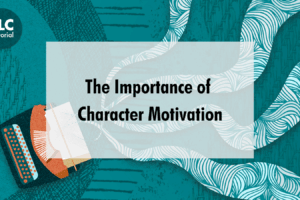
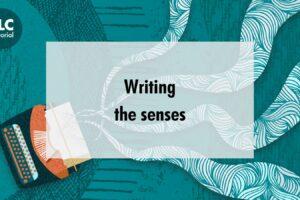
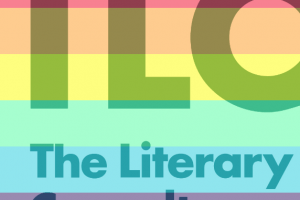
One Response
Hi,
I too have an adult ADHD diagnosis. It explains a lot but changes nothing. I write but will do anything to avoid it. At the moment every cupboard in my office is emptied and there is no way I can write until I have a new desk. But the stories and the characters play out in my head the whole time. So when the moment comes I will have a lot to write. It’s fun but exhausting. Like my life.
Beck